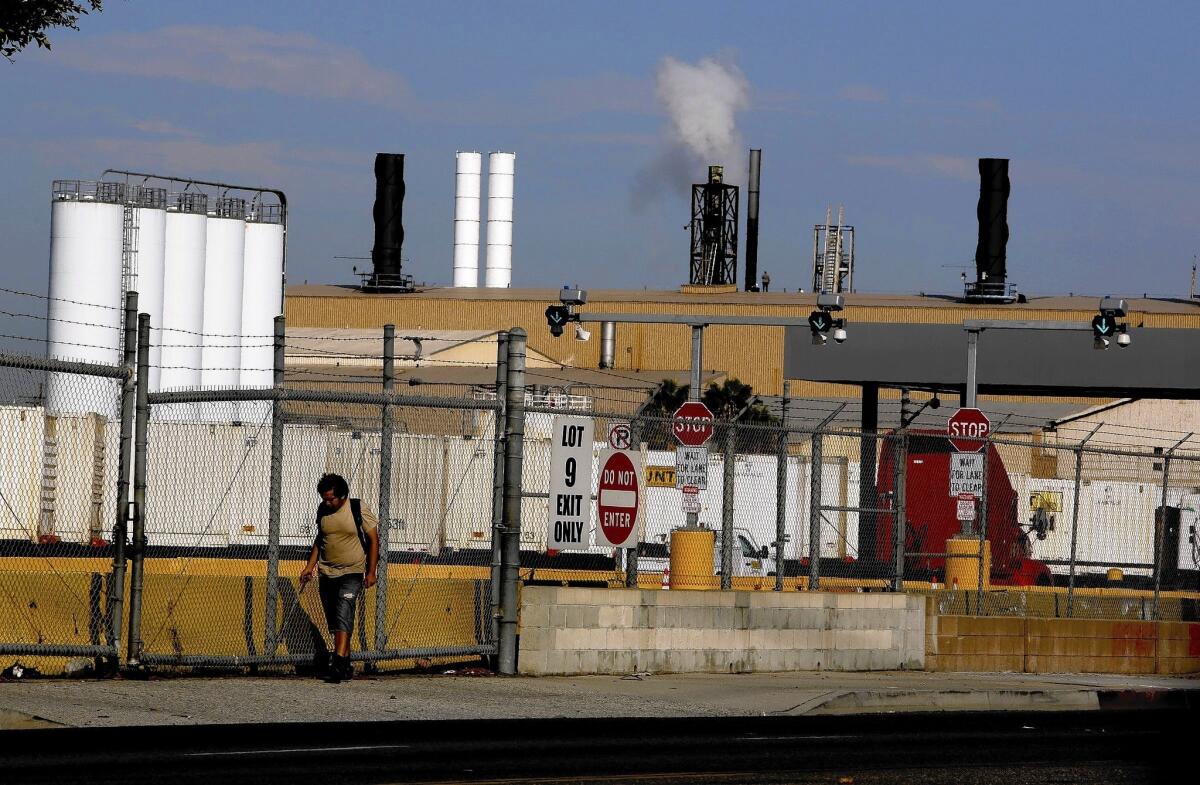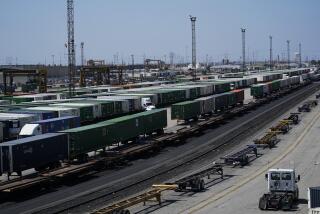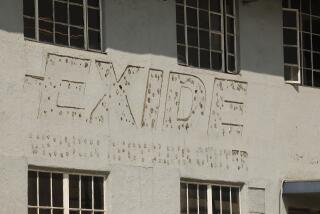Air quality district OKs Exide’s plan — with misgivings

One year after the South Coast Air Quality Management District found that arsenic emissions from a Vernon battery plant posed a cancer risk to more than 100,000 people, the agency has approved Exide Technologies Inc.’s plan to reduce health risks.
Exide issued a statement saying it had “worked diligently” with regulators and intends to invest more than $5 million in the facility as a result of the new plan, on top of $15 million the company has already spent or pledged for other environmental and public health-related improvements since 2010.
“Safety and public health protection are top priorities for Exide,” said E.N. “Bud” Desart, one of the company’s senior directors. The company’s statement also said that arsenic emissions are down 95% since April 2013.
Barry Wallerstein, the executive officer of the air district, was not so upbeat about the announcement. He said that despite approving the plan, he has real doubts about Exide’s “ability and/or desire” to comply with emission rules designed to protect public health.
He noted that the company has continued to rack up violations of air district rules, including one this month for failing to report its emissions in a timely fashion and two in January for temporarily removing part of the roof, potentially releasing toxic emissions and failing to warn the air district and public about it. The company was also cited for emitting too much lead in early January.
Wallerstein added that he believes Exide touts its commitment to public health and its cooperation with regulators in news releases, yet behind the scenes is spending large sums on lawyers to try to undercut air district regulations.
“Their recent public announcements are disappointing and we are concerned they are misleading to the public,” he said.
In a separate proceeding, the air district is seeking to temporarily stop smelting operations at the plant until Exide can bring emissions under control. Exide is fighting that petition, and a hearing board is taking testimony on the matter.
Elected leaders and community members in a wide swath of southeast Los Angeles have been furious about the plant for the last year, since the air district first revealed the risk from the arsenic emissions. The plant also has a long history of exceeding acceptable lead levels.
Earlier this month, officials with the state Department of Toxic Substances Control announced that testing had revealed elevated levels of lead in the soil at homes and a park north and south of the plant.
More to Read
Sign up for Essential California
The most important California stories and recommendations in your inbox every morning.
You may occasionally receive promotional content from the Los Angeles Times.










